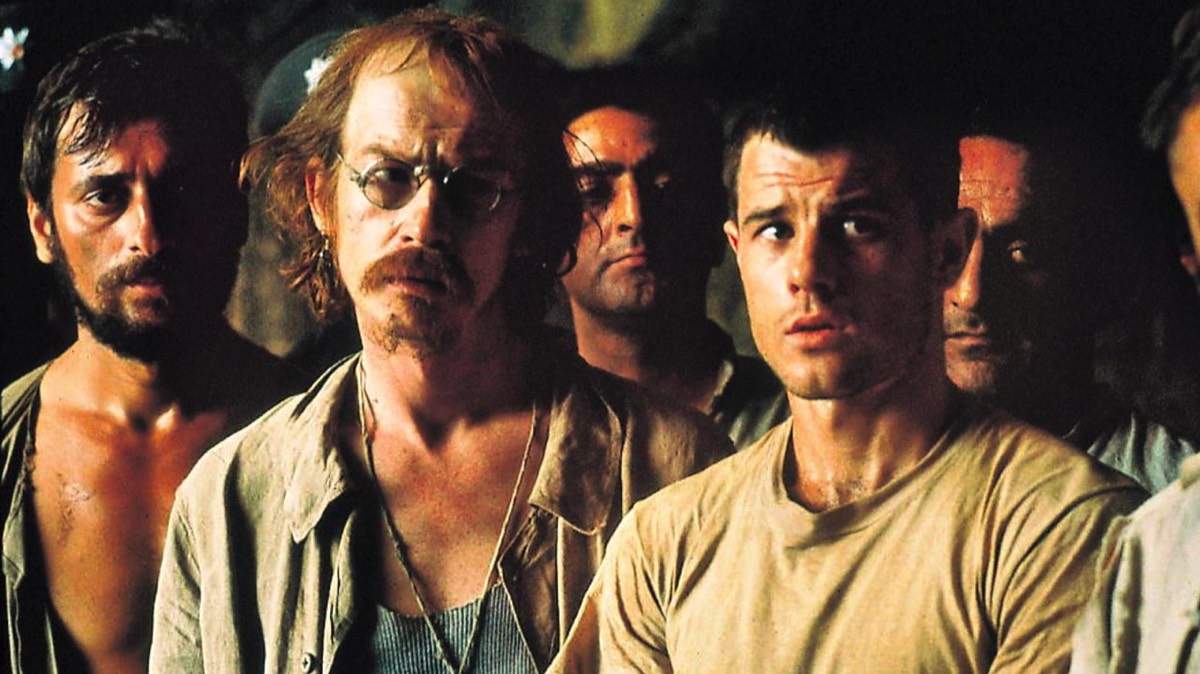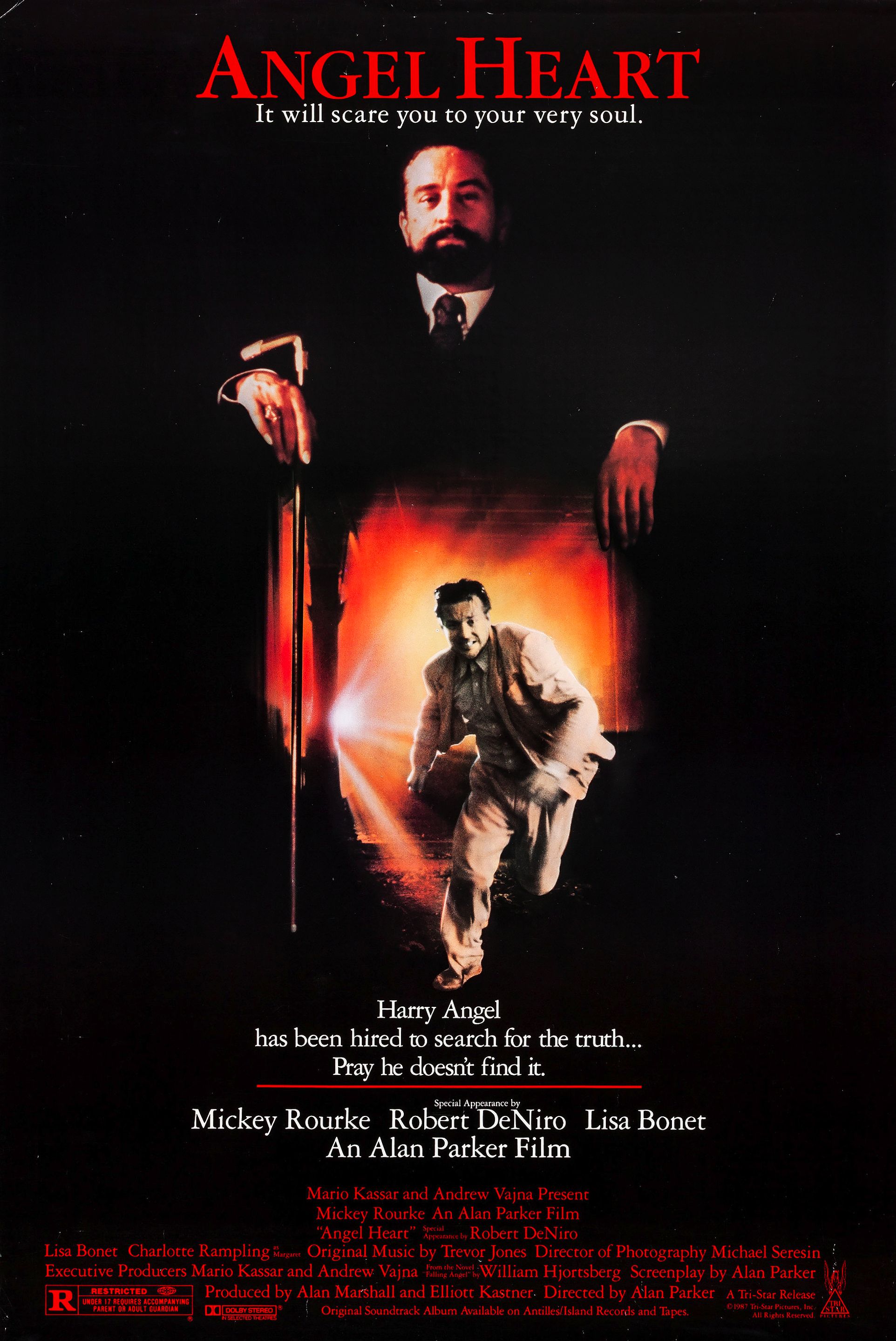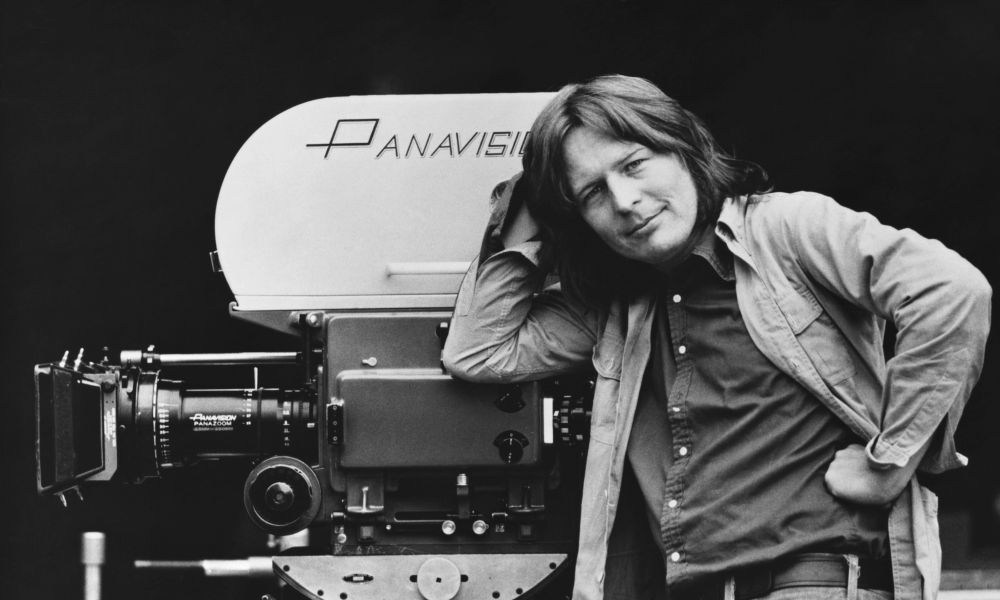"The films of Alan Parker display technical bravura, strong, often contentious stories, and an admitted preference for a 'theatrical edge.' In the early 1970s, Alan Parker, a working-class Londoner, ran a successful advertising film company. His films reveal his training in attention-grabbing, and his talent for new and bold ideas." - Ronald Bergan (Eyewitness Companions: Film, 2006)
Alan Parker
Director / Screenwriter / Producer
(1944-2020) Born February 14, Islington, London, England
(1944-2020) Born February 14, Islington, London, England
Key Production Countries: USA, UK
Key Genres: Drama, Musical, Psychological Drama, Mystery, Musical Drama, Coming-of-Age, Period Film, Family Drama, Detective Film, Rock Musical, Urban Drama, Music
Key Collaborators: Gerry Hambling (Editor), Alan Marshall (Producer), Michael Seresin (Cinematographer), Geoffrey Kirkland (Production Designer), Brian Morris (Production Designer), Peter Biziou (Cinematographer), Oliver Stone (Screenwriter), Trevor Jones (Composer)
Key Genres: Drama, Musical, Psychological Drama, Mystery, Musical Drama, Coming-of-Age, Period Film, Family Drama, Detective Film, Rock Musical, Urban Drama, Music
Key Collaborators: Gerry Hambling (Editor), Alan Marshall (Producer), Michael Seresin (Cinematographer), Geoffrey Kirkland (Production Designer), Brian Morris (Production Designer), Peter Biziou (Cinematographer), Oliver Stone (Screenwriter), Trevor Jones (Composer)
"Parker has a knack for turning diverse subjects into uniquely personal statements. After his popular success with the stylish Fame (1980), he turned to a sensitively detailed examination of relationships in Shoot the Moon (1981), and in Pink Floyd: The Wall (1982) he expanded the themes of the bestselling rock concept album, employing innovative animation techniques… Always fiercely independent, Parker has often lambasted the British Film establishment and film critics. No stranger to controversy, he took on the ratings board of the MPAA and personally challenged their 'X' rating of Angel Heart." - Tony Zaza (The Virgin International Encyclopedia of Film, 1992)
"Nearly every remembrance of British filmmaker Alan Parker… emphasizes the eclectic range of the fourteen features he made over the course of twenty-eight years. The oeuvre that ultimately garnered ten Oscars, ten Golden Globes, and nineteen BAFTA awards encompasses sprightly musicals, wrenching family dramas, and gripping political thrillers. What binds them all, though, are Parker’s plain-as-day moral convictions, stories driven hard by characters with clear-cut goals, and a penchant for sleek, dynamic compositions rooted in Parker’s years as a director of hundreds of television commercials." - David Hudson (The Criterion Collection, 2020)

Midnight Express (1978)
"Sir Alan Parker came to the cinema after directing British TV commercials. From this medium, he learned to punch over every point at least twice, getting close to dramatic moments and working hard to rid the screen of anything like ambiguity. Like his sometime collaborator and later nemesis, Oliver Stone, Parker favors very loud statements - and his films often shout at the tops of their voices." - Kim Newman (501 Movie Directors, 2007)
"Parker was a notable director of musicals, a genre he both embraced and expanded. Fame was a gritty but celebratory story of life at a performing arts high school; Pink Floyd – The Wall was a surreal rock opera; The Commitments charted a ramshackle Dublin soul band; and Evita cast Madonna as Argentina’s first lady Eva Peron in a big-screen version of Andrew Lloyd Webber’s stage musical. Parker also championed Britain’s film industry, serving as the chairman of the British Film Institute and the UK Film Council. He was knighted by the Queen in 2002." - Clémence Michallon (Independent, 2020)
"Though obvious, it is nevertheless true to say that the films of Alan Parker betray his origins in TV and film commercials. Style tends to dominate content, with plot-logic, characters and moral consistency forsaken in favour of facile emotional effects… Parker has often attacked arty pretentiousness but his work, characterised by heavy-handed visuals and a taste for controversial or sensationalist subjects, seems to suggest a desire for artistic and intellectual recognition." - Geoff Andrew (The Film Handbook, 1989)
"With his range of eclectic movies — many ending on a downbeat note — Parker was fluent in several genres. “I like to do different things each time” as a way to stay creatively fresh, he said. He received the British film industry’s highest honor, the Academy Fellowship, in 2013. Parker, who directed 14 features and wrote six of those, was especially expert at music-oriented films: think Bugsy Malone (1976), Fame (1980), Pink Floyd: The Wall (1982), The Commitments (1991) and Evita (1996), with Madonna as Eva Perón. “If you can use music and images together, it’s very powerful,” he noted in 1995." - Duane Byrge & Mike Barnes (The Hollywood Reporter, 2020)
"I always argued against the auteur theory; films are a collaborative art form. I’ve had some fantastically good people help me make the movies. I get annoyed when I see some directors wanting too much credit. On the other hand, all films are hard to make; you leave a bit of yourself behind up there on the screen. There is an identity to my films, which is as much mine as anyone else’s and I’m pleased with that." - Alan Parker (The Guardian, 2013)
Selected Filmography
{{row.titlelong}}
Alan Parker / Favourite Films
The Godfather Part II (1974) Francis Ford Coppola, 1900 (1976) Bernardo Bertolucci, One Flew Over the Cuckoo's Nest (1975) Milos Forman, Raging Bull (1980) Martin Scorsese, The Third Man (1949) Carol Reed.
Source: The Scotsman (2003)
The Godfather Part II (1974) Francis Ford Coppola, 1900 (1976) Bernardo Bertolucci, One Flew Over the Cuckoo's Nest (1975) Milos Forman, Raging Bull (1980) Martin Scorsese, The Third Man (1949) Carol Reed.
Source: The Scotsman (2003)
Alan Parker / Fan Club
Tatsuya Mori, Baltasar Kormákur, Frédéric Vitoux, Sonke Wortmann, Gerard Krawczyk, Roger Ebert, Todd Field, Jean-Marc Bouineau.
Tatsuya Mori, Baltasar Kormákur, Frédéric Vitoux, Sonke Wortmann, Gerard Krawczyk, Roger Ebert, Todd Field, Jean-Marc Bouineau.
"Fan Club"
These film critics/filmmakers have, on multiple occasions, selected this director’s work within film ballots/lists that they have submitted.
These film critics/filmmakers have, on multiple occasions, selected this director’s work within film ballots/lists that they have submitted.


